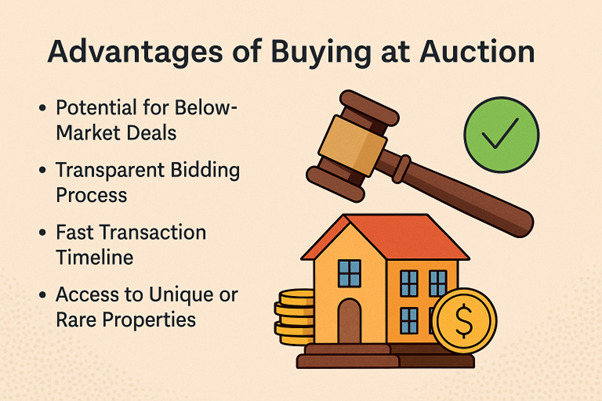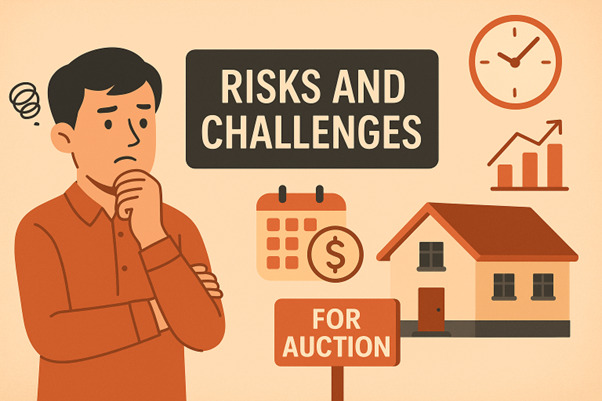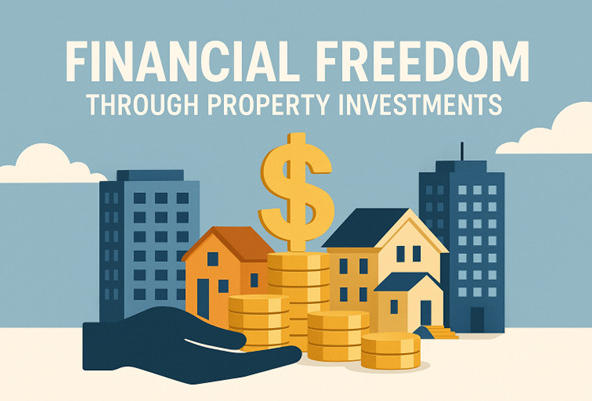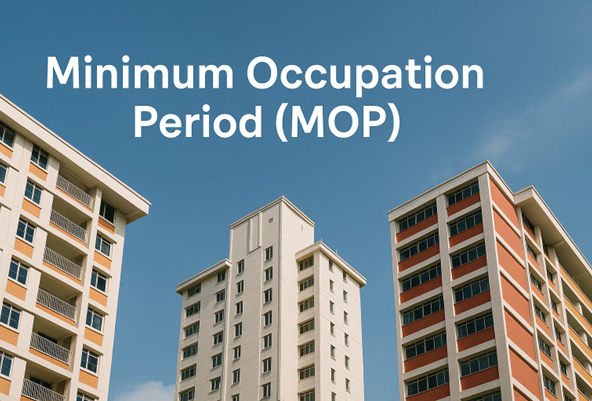
Singapore Property Auctions Explained: Pros, Cons, and How to Prepare
Property auctions in Singapore are becoming more prominent, fuelled by rising mortgagee sales and an uncertain economic climate. In 2023 alone, industry experts noted a surge in listings, with some auction houses predicting up to a 50% increase compared to the previous year. This trend has caught the attention of both seasoned investors and first-time buyers looking for potential bargains.
Unlike traditional private sales, auctions move at a faster pace and often present properties that are not easily found in the open market. From HDB flats and private condominiums to heritage shophouses and industrial units, the variety on offer can be surprisingly broad.
However, opportunities often come with risks. The potential for securing a property below market value is balanced by challenges such as limited research time, strict completion deadlines, and intense bidding competition. Understanding these dynamics is key to deciding whether auctions truly offer opportunity — or risk.
What Are Auction Properties?
Auction properties in Singapore are real estate assets sold through a public bidding process, overseen by licensed auctioneers. The sale is typically fast-paced, with bids called out in real time until the highest offer meets or exceeds the seller’s reserve price. Successful bidders sign the Sale and Purchase Agreement on the spot and pay a deposit immediately.
This approach differs from private negotiations as all offers are transparent, and there is no extended Option to Purchase period. It appeals to buyers seeking speed, clarity, and potentially better pricing.
Key Sale Types
- Mortgagee sales – Properties repossessed by banks due to loan defaults, often priced for quick recovery of outstanding debt.
- Owner’s sales – Voluntary sales, usually for reasons like divorce settlements or urgent cash flow needs.
- Estate sales – Assets sold by executors of a deceased owner’s estate.
- Sheriff’s sales – Court-ordered disposals to settle debts or legal claims.
Property Categories
Auction listings can span residential units such as HDB flats, condominiums, and landed homes. Commercial offerings may include shophouses, office spaces, or retail units. Industrial auctions cover warehouses, factories, and logistics spaces — often sought by businesses for expansion at competitive entry prices.
Advantages of Buying at Auction

Buying a property at auction can open doors to opportunities that are often hard to find in the open market. For buyers who are well-prepared, the benefits go beyond just price — it’s about speed, transparency, and access to unique assets.
Auctions can be particularly attractive in market conditions where motivated sellers are willing to close quickly, making it possible to secure value without the long wait.
Potential for Below-Market Deals
Some auction properties, especially those from mortgagee sales, are priced competitively to encourage bidding. It’s not uncommon to see final prices 5% to 10% below recent comparable transactions, translating into substantial savings for the buyer.
Transparent Bidding Process
All bids are made in a public setting, which ensures a fair and open process. Buyers can see competing offers in real time, removing doubts about hidden negotiations or backroom deals.
Fast Transaction Timeline
Once the hammer falls, the sale is confirmed, and completion usually follows within 8 to 12 weeks. This makes auctions appealing for buyers who want to take possession quickly.
Access to Unique or Rare Properties
Auctions often feature distinctive assets such as heritage shophouses, freehold landed plots, or industrial sites — properties that may not appear in regular listings.
Risks and Challenges

While auctions can be rewarding, they are not without their hurdles. The speed and competitiveness that make them exciting can also catch unprepared buyers off guard. Without the right preparation, the risks can outweigh the rewards.
Understanding these potential pitfalls is crucial before stepping into the auction room.
Limited Timeframe for Due Diligence
Auction listings are typically released just one to two weeks before the event. This short window leaves little time for inspections, legal checks, or market comparisons, increasing the risk of overlooking defects or hidden costs.
Competitive, High-Pressure Environment
Bidding can be intense, especially for rare or well-located properties. In the heat of competition, it’s easy to bid beyond your budget, which can turn a potential bargain into an overpayment.
Strict Financing Deadlines and Deposit Requirements
Winners must pay a 5% to 10% deposit immediately and complete the balance within 8 to 12 weeks. Failure to secure financing in time can lead to forfeiting the deposit.
Limited Availability of Suitable Properties
Each auction offers a small selection, and there’s no guarantee the right property will be available. Buyers may need to attend multiple auctions before finding a match.
Essential Preparation
Winning at an auction is not just about raising your hand at the right time — it starts well before auction day. Preparation is the difference between walking away with a great deal and making an expensive mistake.
By covering the key groundwork, you can enter the auction room with clarity and confidence.
Determine Market Value Using URA Data
Study recent transactions of similar properties in the same area. URA’s official price data can help you set a realistic ceiling for your bid, ensuring you don’t pay more than the property is worth.
Conduct Physical Inspections and Legal Checks
Always attend pre-auction viewings and engage a professional to spot structural issues. A conveyancing lawyer can review the Conditions of Sale to highlight any liabilities or restrictions.
Secure Financing Before Bidding
Obtain an In-Principle Approval so you know exactly how much you can borrow. Have funds ready for the deposit, which must be paid on the spot if you win.
Understand Guide Price, Reserve Price, and Sale Conditions
The guide price is only indicative; the reserve price is the true minimum the seller will accept. Be aware of completion deadlines and penalties before committing to a bid.
Conclusion
Buying a property at auction in Singapore can be both exciting and rewarding, but it is not without its challenges. For some, it’s a chance to secure a property below market value or find something truly unique that rarely appears in traditional listings. For others, the speed, competition, and strict terms can make the process stressful and risky.
Success in auctions comes down to preparation, discipline, and a clear strategy. This means knowing the property’s true market value, carrying out thorough inspections, having financing in place, and fully understanding the terms before bidding.
Auctions are best suited to buyers who are confident in making fast decisions and are financially ready to complete the purchase within tight deadlines. If approached with caution and the right knowledge, auctions can open doors to opportunities that might not be available elsewhere in the market — but only for those who are truly ready.
FAQ’s
1. What are the risks of buying a property at auction in Singapore?
The main risks include having limited time for due diligence, bidding in a competitive environment that may push prices above market value, strict financing timelines with immediate deposit requirements, and a smaller pool of available properties. Without proper preparation, buyers may face unexpected costs or even lose their deposit.
2. How to buy auction property in Singapore?
To buy at auction, start by monitoring listings from reputable auction houses. Shortlist properties, attend pre-auction viewings, and conduct legal checks. Use URA data to set a bidding limit, secure financing with an In-Principle Approval, and have the deposit ready. On auction day, stick to your budget and understand the sale terms before bidding.
3. Can I get a loan for an auction property in Singapore?
Yes, banks in Singapore offer loans for auction properties, but timelines are strict. Securing an In-Principle Approval before the auction is essential to avoid financing delays and deposit forfeiture.
4. Are auction properties always cheaper than market value?
Not always. While mortgagee sales may start below market value, competitive bidding can push prices up. Always compare the guide price with recent URA transaction data before deciding your maximum bid.
5. What types of properties are sold at auction in Singapore?
Auction listings can include residential properties such as HDB flats, private condominiums, and landed homes, as well as commercial spaces like shophouses, retail units, and offices, and industrial assets such as warehouses and factories.


